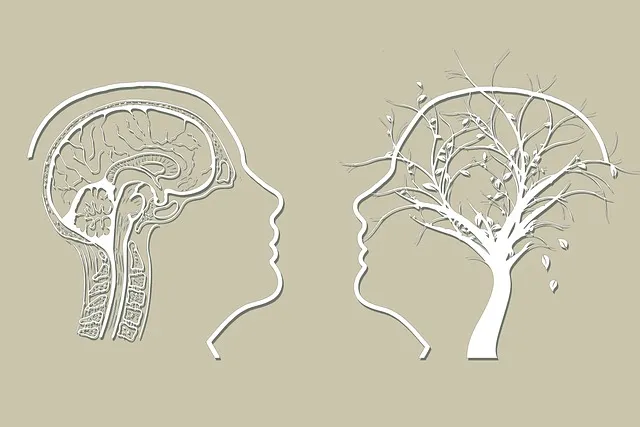The Crisis Intervention Team (CIT) programs at Littleton Kaiser Permanente revolutionize mental health support, equipping providers with specialized skills for crisis management. The program focuses on de-escalation, communication, and self-esteem improvement through rigorous training, self-awareness exercises, and open channels of communication. Led by the Littleton Kaiser Permanente mental health providers, CIT training extends to community members, first responders, and healthcare workers, fostering a compassionate environment for managing mental health crises. Regular evaluation and public awareness campaigns further enhance the program's effectiveness in building resilient communities.
“Crisis Intervention Team (CIT) training programs are transforming community responses to mental health emergencies. This article delves into the critical role of healthcare providers, specifically those at Littleton Kaiser Permanente, in facilitating CIT education. We explore how their expertise strengthens local support networks for individuals in crisis.
We discuss best practices for implementing and refining CIT skills, emphasizing continuous improvement strategies. By examining these initiatives, we aim to highlight the positive impact on mental health outcomes and community resilience.”
- Understanding Crisis Intervention Team (CIT) Programs: A Foundation for Mental Health Support
- The Role of Littleton Kaiser Permanente Mental Health Providers in CIT Training
- Implementing and Enhancing CIT Skills: Best Practices for Continuous Improvement
Understanding Crisis Intervention Team (CIT) Programs: A Foundation for Mental Health Support

Crisis Intervention Team (CIT) programs play a vital role in fostering mental health support within communities, particularly in healthcare settings like Littleton Kaiser Permanente. These programs are designed to equip professionals, often including mental health providers, with specialized skills to effectively respond to individuals experiencing crises, such as suicidal thoughts or severe emotional distress. By integrating CIT training, healthcare organizations like Kaiser Permanente in Littleton can enhance the quality of care and create a more compassionate environment for patients navigating mental health challenges.
The foundation of CIT programs lies in combining education, practice, and collaboration. Participants learn evidence-based techniques, including active listening, de-escalation strategies, and crisis management protocols. They also engage in role-playing scenarios to develop empathy and refine their decision-making skills. Additionally, these programs often incorporate mental wellness journaling exercises, compassion cultivation practices, and resilience-building guidance to empower professionals and ensure they can offer the best possible care during high-stress situations.
The Role of Littleton Kaiser Permanente Mental Health Providers in CIT Training

The Littleton Kaiser Permanente mental health providers play a pivotal role in crisis intervention team (CIT) training programs. These dedicated healthcare professionals bring a wealth of expertise and knowledge in managing and supporting individuals experiencing mental health crises. They are instrumental in educating community members, first responders, and other healthcare workers on effective CIT strategies, ensuring that everyone involved is well-prepared to handle such critical situations.
By leveraging their deep understanding of the Mental Wellness and Mind Over Matter Principles, these providers empower participants with essential skills for de-escalation, communication, and crisis resolution. Moreover, they emphasize Self-Esteem Improvement, a key aspect in fostering supportive environments that can make a significant difference in an individual’s recovery journey. Through their comprehensive training, Littleton Kaiser Permanente mental health providers contribute to building resilient communities capable of responding effectively to mental health crises.
Implementing and Enhancing CIT Skills: Best Practices for Continuous Improvement

Implementing and enhancing crisis intervention team (CIT) skills is a continuous process that requires regular training and practice. At Littleton Kaiser Permanente, mental health providers undergo rigorous programs to ensure they are equipped with the latest techniques for managing crises effectively. Best practices include incorporating self-awareness exercises into team sessions, fostering open communication channels, and providing ongoing guidance on mental wellness journaling exercises. These initiatives not only strengthen individual skills but also promote a culture of support within the team.
Additionally, public awareness campaigns play a pivotal role in enhancing CIT capabilities. By educating the community about recognizing and responding to mental health crises, these campaigns reduce stigma and improve overall crisis management. Regular evaluation and feedback sessions are essential for identifying areas of improvement, ensuring that CIT members stay updated with the best practices and are prepared to handle diverse crisis scenarios encountered in the community, such as those faced by Littleton Kaiser Permanente mental health providers.
Crisis intervention team (CIT) training programs, as facilitated by organizations like Littleton Kaiser Permanente mental health providers, play a pivotal role in equipping healthcare professionals with essential skills for addressing mental health crises effectively. By implementing best practices outlined in this article, including continuous improvement and comprehensive training, CIT teams can enhance their ability to provide timely and compassionate support. This, in turn, contributes to improved outcomes for individuals facing severe emotional distress, fostering safer communities, and underscores the importance of robust mental health support systems.






